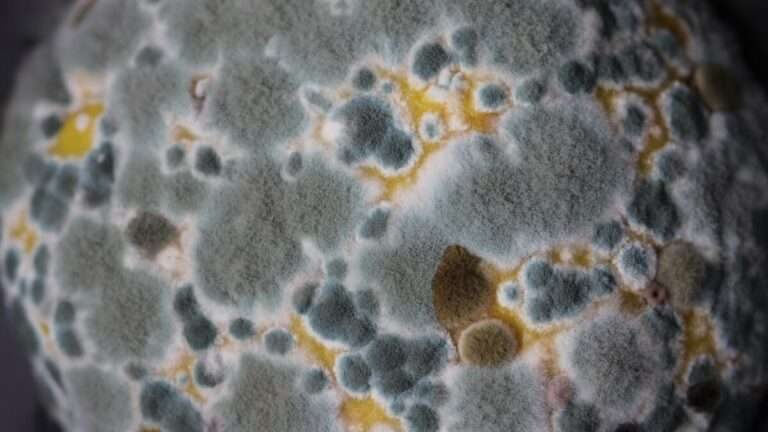Mold allergies are a common problem that can cause a range of symptoms, from sneezing and coughing to headaches and fatigue. Unfortunately, there are many myths about mold allergies that can lead to confusion and misinformation.
In this article, we’ll look at the top five myths about mold allergies and bust them once and for all!
Table of Contents
What is Mold?
Mold is a type of fungus that grows in damp or humid environments. It reproduces by releasing tiny spores into the air which can be inhaled by humans, triggering an allergic reaction in some people. Mold can be found both indoors and outdoors, but it’s more likely to grow indoors where there is less ventilation or where moisture has been allowed to accumulate over time.
1. All Molds Are Allergenic
This myth couldn’t be further from the truth! While some molds do produce allergens that can trigger an allergic reaction in sensitive individuals, not all molds are allergenic. In fact, most molds are harmless and don’t cause any adverse reactions at all! The key is knowing which types of mold you should avoid if you have an allergy or sensitivity to them.
2. You Can Avoid Allergies By Keeping Your Home Clean
While keeping your home clean is important for overall health reasons, it won’t necessarily prevent mold allergies from occurring as they aren’t caused by dirt or grime but rather by airborne spores produced by certain types of fungi (mold). To reduce your risk of developing an allergy to mold spores it’s important to keep your home dry (especially areas prone to moisture such as bathrooms) and well-ventilated so that any excess moisture doesn’t accumulate over time – this will help prevent the growth of potentially harmful molds inside your home.
3. Mold Allergies Are Rare
Contrary to popular belief, mold allergies are actually quite common – according to recent estimates up 10% of Americans suffer from some form of allergy related to exposure to indoor allergens such as dust mites or pet dander; however up 20% suffer from sensitivities related specifically too exposure too certain types of fungi (mold). This means that if you think you may have a sensitivity to certain types of fungi then it’s worth getting tested to see if this could be causing your symptoms – especially if these symptoms seem to worsen when exposed to damp/humid environments such as basements or bathrooms etc.
4. You Can Treat A Mold Allergy With Antihistamines
Antihistamines may provide temporary relief for mild cases of allergic rhinitis caused by exposure to certain types of fungi; however, they won’t address the underlying cause which could still remain even after taking medication – meaning further exposures could still trigger another episode of symptoms even after treatment with antihistamines has been completed. For this reason, it is important not just to treat the symptom but also to try to identify what might be causing them so appropriate steps can then be taken two reduce/eliminate future exposures whenever possible.
5. There Is No Cure For A Mold Allergy
While there isn’t currently any cure for a mold allergy, however, avoiding known triggers and reducing or eliminating future exposures wherever possible will often result in significant improvement and sometimes complete resolution of symptoms over time. Depending on individual circumstances & severity of their condition, etc. Additionally making lifestyle changes such as improving ventilation within their living environment & using dehumidifiers two reduce humidity levels within their home may also help two minimize future episodes & improve the overall quality of life long term.
In conclusion, Mold allergies are common yet often misunderstood conditions with many misconceptions surrounding them leading people astray when trying to diagnose and treat their condition appropriately… In this article we’ve looked at five common myths about mold allergies & busted each one one by one – highlighting why it is important two get accurate information before attempting self-diagnosis/treatment etc… If you think you may have mold allergy then speak with a qualified healthcare professional who’ll able give advice tailored specifically two individual circumstances… Remember prevention is always better than cure – so take steps now two minimize the risk of developing mold-related sensitivities long term.

